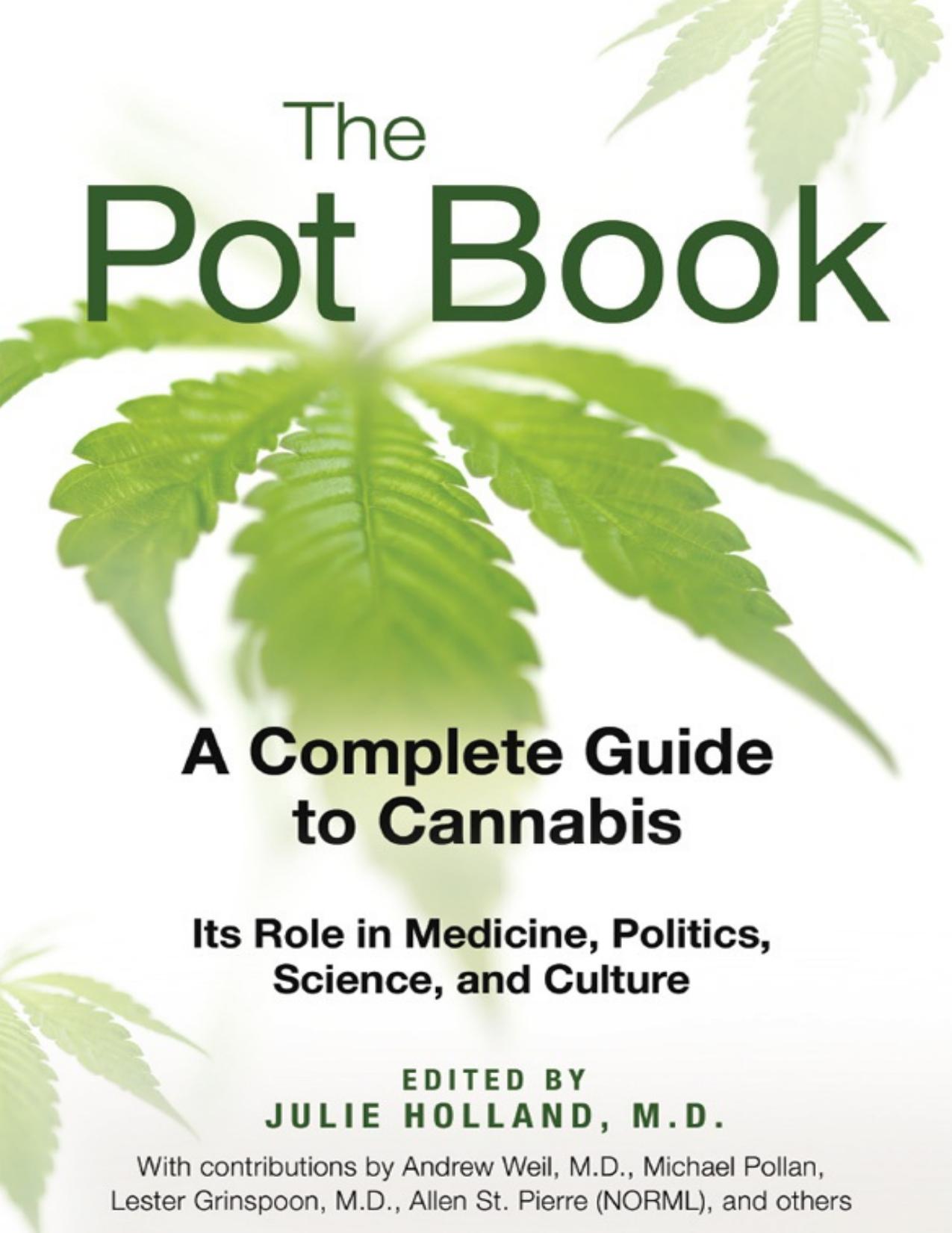The Pot Book by Julie Holland M.D

Author:Julie Holland, M.D.
Language: eng
Format: epub, pdf
Tags: Entheogens/Popular Culture
ISBN: 9781594778988
Publisher: Inner Traditions / Bear & Company
Published: 2010-09-19T16:00:00+00:00
24
Cannabinoids and Psychiatry
Julie Holland, M.D.
The study of cannabis and cannabinoids could be enormously beneficial to the field of psychiatry. Cannabis has been used as a treatment for depression, anxiety, inattention, malaise, and insomnia for thousands of years. Millions of people around the world are using marijuana to “self-medicate” these symptoms and others. For these two reasons alone, it would behoove us to have a better understanding of the medicinal properties of this plant.
Specific to the field of psychiatry, we have much to learn about the brain’s endogenous cannabinoid system. To study THC, CBD, and other cannabinoids is to better understand ourselves, our brain chemistry, the brain’s response to injury, and the underlying pharmacology of mind states such as paranoia and panic. Understanding the chemistry and physiology of the cannabinoid molecules could potentially help us create analogues and antagonists to treat other symptoms and diseases. (For example, the cannabinoid antagonist rimonabant can help curb appetite, or stop the “munchies,” but, interestingly, it was rejected by the FDA due to concerns surrounding its ability to induce depression, anxiety, and suicidal thoughts.)
In my private practice, I see and treat many pot smokers. Some of them note that smoking marijuana helps them fall asleep or relax, and they tend to smoke at the end of their day. Others find it helps them focus, be creative, or become more meticulous and obsessive; these patients tend to use marijuana before starting a project. I have patients with attention deficit disorder (ADD) who feel it helps them pay attention to minute details. I also hear from a fair number of people with depression that it can reliably lift their spirits and create a much-longed-for sense of euphoria and hopefulness. Then there are my anxious or panicky patients who feel that pot makes their symptoms worse; they become more self-conscious and hyperaware, and they are not at all comfortable with marijuana’s effects. On the other hand, I have some anxious patients who swear by it as an aid to relaxation. Any reasonable clinician should be intrigued by this phenomenon: Why are so many patients having such vastly different effects and experiences?
The joke I always make about cannabis with my patients is that it is a “mixed bag.” Because there is such tremendous genetic diversity in cannabis, every strain is unique. Each time someone makes a purchase, they are getting a different medicine, so to speak. Hybrids abound in New York City as they do in the rest of the world, and it is nearly impossible to know just what the mix will be. If they buy an indica-predominant strain, they may become sleepier, more relaxed, and possibly less motivated. A sativa-predominant strain may help energize or focus their thoughts. Both strains seem to induce appetite, which may be a nuisance for some users, but a blessing for those patients made nauseated and anorectic by their medications or illnesses. Some strains might trigger paranoia, perhaps due to a high THC content, while another strain might have an opposite effect if it is CBD-heavy (see below).
Download
This site does not store any files on its server. We only index and link to content provided by other sites. Please contact the content providers to delete copyright contents if any and email us, we'll remove relevant links or contents immediately.
| Dictionaries & Terminology | Drug Guides |
| Education & Training | Instruments & Supplies |
| Medical Atlases |
Periodization Training for Sports by Tudor Bompa(8274)
Why We Sleep: Unlocking the Power of Sleep and Dreams by Matthew Walker(6726)
Paper Towns by Green John(5191)
The Immortal Life of Henrietta Lacks by Rebecca Skloot(4589)
The Sports Rules Book by Human Kinetics(4388)
Dynamic Alignment Through Imagery by Eric Franklin(4217)
ACSM's Complete Guide to Fitness & Health by ACSM(4060)
Kaplan MCAT Organic Chemistry Review: Created for MCAT 2015 (Kaplan Test Prep) by Kaplan(4014)
Livewired by David Eagleman(3775)
Introduction to Kinesiology by Shirl J. Hoffman(3774)
The Death of the Heart by Elizabeth Bowen(3622)
The River of Consciousness by Oliver Sacks(3604)
Alchemy and Alchemists by C. J. S. Thompson(3522)
Bad Pharma by Ben Goldacre(3428)
Descartes' Error by Antonio Damasio(3279)
The Emperor of All Maladies: A Biography of Cancer by Siddhartha Mukherjee(3163)
The Gene: An Intimate History by Siddhartha Mukherjee(3099)
The Fate of Rome: Climate, Disease, and the End of an Empire (The Princeton History of the Ancient World) by Kyle Harper(3067)
Kaplan MCAT Behavioral Sciences Review: Created for MCAT 2015 (Kaplan Test Prep) by Kaplan(2987)
